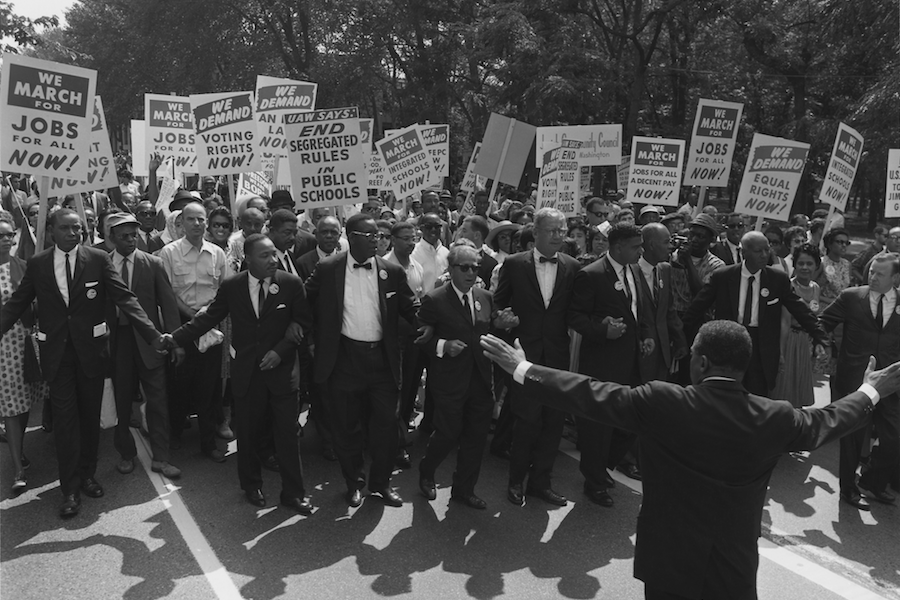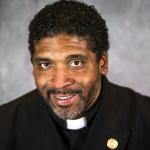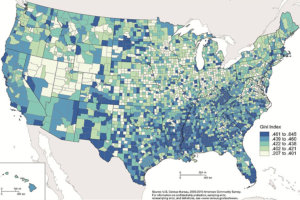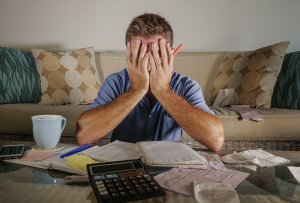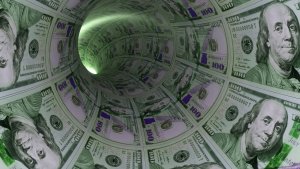Extract from the keynote speech by the Rev. Dr. William Barber III at the Institute for New Economic Thinking conference on race and economics in Detroit on November 11
Fifty years ago, Rev. Dr. Martin Luther King, Jr. proposed that America launch a broad-based, gigantic Bill of Rights for the disadvantaged and a Marshall Plan for the poor and the hurting. He said if we were willing to rebuild Europe after World War II, then America should be willing to rebuild Appalachia where poor whites were; the inner cities of Detroit and Chicago; and the Deltas of Mississippi and Alabama.
“While Negroes form the vast majority of America’s disadvantaged there are millions of poor whites who would also benefit from this kind of bill,” he wrote, referring to a massive bottom-up stimulus.
“The moral justification for the special measures for the negro is rooted in the robberies of the institution of slavery”, Dr. King wrote, but hastened to add, “many poor whites, however, were the derivatives of the victims of slavery. As long as labor was cheapened by involuntary servitude of the black man, the freedom of white labor, especially in the South was little more than a myth.” He called for a Federal program of public works that would retain jobs for all so that “none, white or black, will have cause to feel threatened”. Dr. King understood that saving communities should be first over saving corporations, that we should not treat corporations like people and people like things. He understood that if you ignore the poor, eventually there will be an implosion. What we’re really beginning to experience, as University of Maryland political economist Gar Alperowitz wrote, “is a process of slow decay, punctuated by a recurring economic crisis, one in which reforms achieve sporadic gains. But the long term trends of growing inequality, economic dislocation, failing democratic accountability, deepening poverty, ecological degradation, greater invasions of liberty and growing imprisonment especially of minorities, continues to slowly and quietly challenge the belief in the capacities and moral integrity of the overall system and its governing elite.”
It is important to recognize the wisdom of Otto Scharmer, who wrote, “There is a blind spot in American economic theory. It’s called consciousness. Our refusal to have an economic theory that looks and sees that we are all integrated and we all really need each other.” The question we face, is how can the nation’s wealth ultimately be shifted institutionally to benefit the vast majority of people? Because we cannot live in isolation. For years we were taught that what was good for Wall Street was good for your street and our street, but that no longer holds true. As Dr. King warned 50 years ago, when you ignore the poor, the whole system will collapse. The first thing we must recognize, is that economic justice is a moral issue. And economics can’t be separated from moral questions. It was never intended that way.
As far back as the Torah, Deuteronomy says caring for the stranger and being just to the poor must be the hallmark of a nation. The Psalmist said relieving the poor and the oppressed is a moral value we need in the public square. Every prophet of the Old Testament: Jeremiah, Malachi, Ezekiel always began their criticism of Israel, their criticism of the nation, with a critique of systems of poverty. Jeremiah says taking care of children and the vulnerable and the innocent must be the call of leaders and their society, and in fact, Jeremiah 22 says go to the palace and tell the king, “Do not hurt the poor and the widows; otherwise, this palace will become rubble.”
Isaiah 10 says this: “Woe unto those who legislate evil and rob the poor of their rights, and make women their prey.” Isaiah 58 says “Secure the rights of the poor”; in fact, in Isaiah 58, we’re supposed to call for the “loosing of the bands of wickedness”. Do you know what “loose the bands of wickedness” means? In Hebrew, it means pay people what they deserve. Pay a living wage, because if you don’t, it’s not merely considered conservative ideology. In the Bible, if you do not pay people a living wage, it is called wickedness. Ezekiel says to refuse dishonest gain, and refuse to be — or to give status to — economic predators. In fact, in Ezekiel 22, Ezekiel says whenever the preachers and the politicians stand on the side of greed and hurt toward the least of these in the poor, whenever the morality preachers and the policy people come together to engage in bad policy that hurts the poor, Ezekiel describes them as acting like rabies-infested wolves.
And Jesus — you know, that brown-skinned, Palestinian Jew that I follow, who never charged the leper or sick person a co-pay, always gave free healthcare, and who was eventually killed by the state? In his first sermon, he said “The spirit of the Lord is upon me for he hath anointed me to preach good news to the poor.”
And the word poor in Greek is patokos. There are three other words for poor: One has to do with somebody being lazy; the other one has to be with somebody suddenly becoming poor because they are suddenly sick. But the word patokos means people who have been made poor by economic systems of exploitation, by stratification that existed in the Roman Empire, where the 1 percent demanded that all the rules operate in their favor, while the 99 percent suffered. And it was those people that Jesus said were at the center of the attention of God, and better be the center of the attention of your community and your nation if you plan that nation to survive the judgment of God.
Watch Reverend Barber's speech on "A Moral Challenge to Economists"
